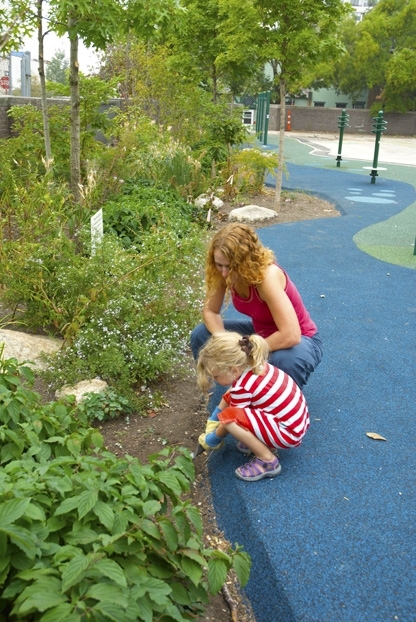The greenSTEM Network connects students to real-time information about their school gardens. Through a collaboration between developers, scientists, designers, and educators, we provide public access to information collected by a network of low-cost, DIY sensor kits spread throughout the city for educational purposes. Our mission is to promote Philadelphia’s Green City, Clean Waters program through STEM education and support the development of the Fairmount Water Works‘ Understanding the Urban Watershed curriculum.
The greenSTEM Network started as a collaboration between Philadelphia Water and members of Code For Philly at the TechCamp hackathon in February 2013. This unique partnership between a city agency and civic hackers furthers the relationships between technology, education, and environmental stewardship. Initial grant funding for the greenSTEM Network was provided by NOAA’s Coastal Nonpoint Pollution Control Program and administered by the Pennsylvania Department of Environmental Protection. We have also received Seed Project funding from Drexel University’s ExCITe Center. The greenSTEM project is now fully funded by Philadelphia Water.
In spring 2014, environmental sensor kits built by 7th-9th grade students were installed at four Philadelphia schools. Students used a web-based visualization tool to help them know when to water the plants in their rain gardens and raised-bed vegetable gardens.
In spring 2015, students at three schools built and installed solar-powered birdhouses equipped with infrared webcams; high school students worked in teams to design their own unique birdhouses.
The Story Is In The Soil: How the Water Dept. and Civic Hackers Are Helping Student Gardens Go High Tech, Philadelphia City Paper cover story, April 17, 2014
In spring 2016, we built a web-connected sewer inlet monitor for a statewide high school STEM competition and also constructed a rain barrel structure that serves as a bench, a stormwater collection canopy, and a cell phone charging station.
For more information, contact matthew.fritch@phila.gov

